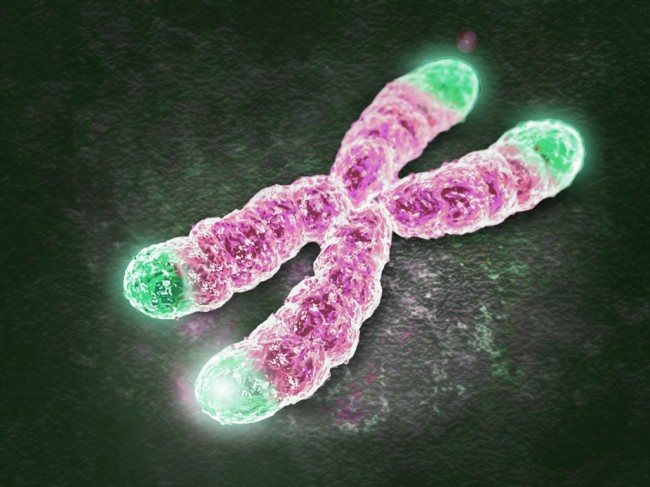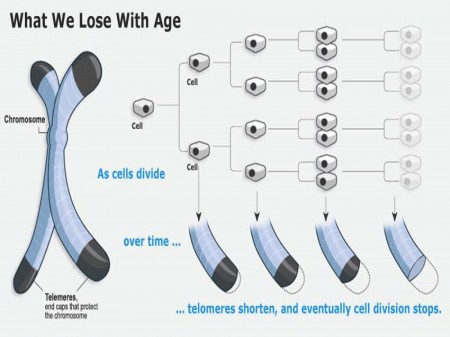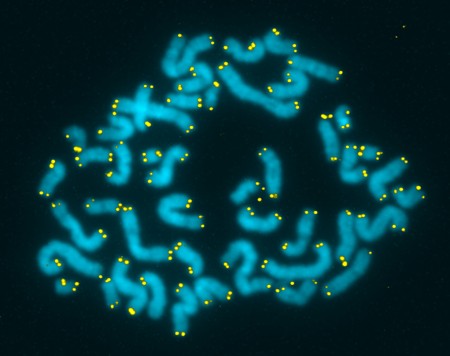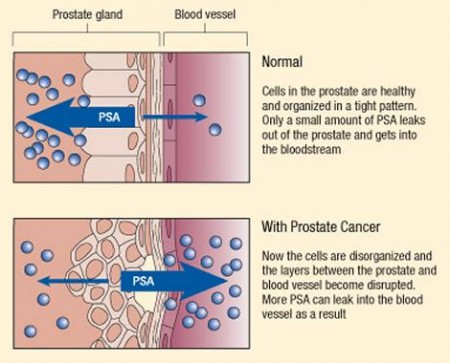
Recent research has sought to investigate the influence of lifestyle changes on telomerase activity and telomere length. The comprehensive study was recently published in The Lancet Oncology journal, and provides some insight into how the aging process could potentially be slowed by adopting healthy lifestyle changes.
was recently published in The Lancet Oncology journal, and provides some insight into how the aging process could potentially be slowed by adopting healthy lifestyle changes.
Telomeres and Telomerase
Telomeres have been described as the “caps” that prevent genetic material from uncoiling, whilst DNA is stored in its compact chromosome form; these regions also serve to prevent different chromosomes
chromosome form; these regions also serve to prevent different chromosomes

Diagram showing the shortening of telomere lengths, following cellular replication
from inappropriately fusing with one another. The telomere is a repeat series of nucleotides, situated at each end of the chromatid, which becomes progressively shorter with each cell replication event.
This shortening occurs when an enzyme, called DNA polymerase, begins to try and replicate DNA, during cell division. DNA polymerase needs to connect to a primer region to commence the process and, consequently, leaves a number of DNA base pairs out during the process.
Alas, the shortening of telomeres is hypothesized to be associated with cellular aging. A recent study, performed by Jue Lin and her colleagues, in 2012, sought to investigate the relationship between telomeres and lifestyle factors. The group established maintenance of telomeres to be affected by genetic, environmental and lifestyle factors in age-related disorders. They suggested that a number of damaging processes contributed towards the observed phenomenon, including the release of stress hormones, inflammation and oxidative stress.
However, one of the very first studies to draw a tentative relationship between telomere length and aging was awarded a Nobel Prize in Physiology

Diagram showing telomere end caps (yellow), at the ends of chromosomes
and Medicine. The three researchers in question initially identified a mutation within yeast cells, which culminated in the shortening of telomere length. The researchers were also able to substantiate that these cells grew poorly and, ultimately, failed to divide.
The group then began experimentation onTetrahymena, a simple organism commonly used in biomedical research . After purposefully mutating the telomerase enzyme, responsible for the manufacture of telomere structures, the cells were then shown to age prematurely. Subsequent studies proved that telomerase was vital in human cells to delay cellular senescence.
. After purposefully mutating the telomerase enzyme, responsible for the manufacture of telomere structures, the cells were then shown to age prematurely. Subsequent studies proved that telomerase was vital in human cells to delay cellular senescence.
The latest research
The latest study was conducted by Dean Ornish of the Preventative Medicine Research Institute at the University of California, San Francisco, and her fellow colleagues. The research focused upon performing a follow-up study of ten men who had developed low-risk prostate cancer.
of California, San Francisco, and her fellow colleagues. The research focused upon performing a follow-up study of ten men who had developed low-risk prostate cancer.
Participants were enrolled between 2003 and 2007, and had agreed to adhere to a new series of rigorous lifestyle changes. Subjects were instructed on diet, stress management, exercise, and social support. A series of controls, who did not have to adhere to this regime, were simply monitored.
Specifically, those participants that were involved in making Ornish’s lifestyle changes had to consume a balanced diet , with plenty of fruit and vegetables, walk at least 30 minutes each day, for six days of the week, and reduce stress levels by taking up yoga and meditation. On top of this, subjects were part of an hour-long support session, which took place once a week.
, with plenty of fruit and vegetables, walk at least 30 minutes each day, for six days of the week, and reduce stress levels by taking up yoga and meditation. On top of this, subjects were part of an hour-long support session, which took place once a week.
Blood samples were taken after five years to assess telomere length and telomerase enzyme activity. These results were then compared to the subjects original baseline results.
On the surface, the data indeed indicates that lifestyle could play a vital role in telomere length. Individuals who rigidly stuck to Ornish’s implemented scheme showed an increase in the telomere length by up to ten percent, following the five year period. Comparatively, those who did not embrace any lifestyle interventions demonstrated a shortening in their average telomere length by three percent.
indeed indicates that lifestyle could play a vital role in telomere length. Individuals who rigidly stuck to Ornish’s implemented scheme showed an increase in the telomere length by up to ten percent, following the five year period. Comparatively, those who did not embrace any lifestyle interventions demonstrated a shortening in their average telomere length by three percent.
On the other hand, telomerase enzyme activity decreased in both sample groups, with no apparent association with lifestyle factors. This finding conflicts with their previous research, conducted in 2008. During this

Diagram showing the release of prostate-specific antigen (PSA) into the bloodstream, following cancer.
three month pilot study, the authors found a correlation between telomerase activity and lifestyle changes.
In addition, the study failed to find any meaningful difference in the two groups’ measured levels of prostate-specific antigen (PSA). PSA is a biochemical marker used to measure the severity of prostate cancer. This, once again, conflicts with data collected from a previous study, which suggested lifestyle factors might impede the progression of early-stage cancers, as well as coronary heart disease.
According to Forbes, President of the American Heart Association Donna Arnett described the study as “fascinating.” However, she calls for caution in interpreting the significance of Ornish’s results, highlighting the limitations of using a population sample of merely ten people.
Alas, the elusive elixir for halting the aging process is yet to be definitively found. Further research must be conducted, using larger population samples, and a mechanistic portrayal of how the afore-mentioned lifestyle factors contribute towards aging is also mandated. Certainly, however, this entirely new world of telomere research is proving to be a highly intriguing scientific endeavor.
For the time being, these results at least suggest that lifestyle factors may play a part in improving telomere length, and could have an impact upon the aging process.
By: James Fenner
No comments:
Post a Comment